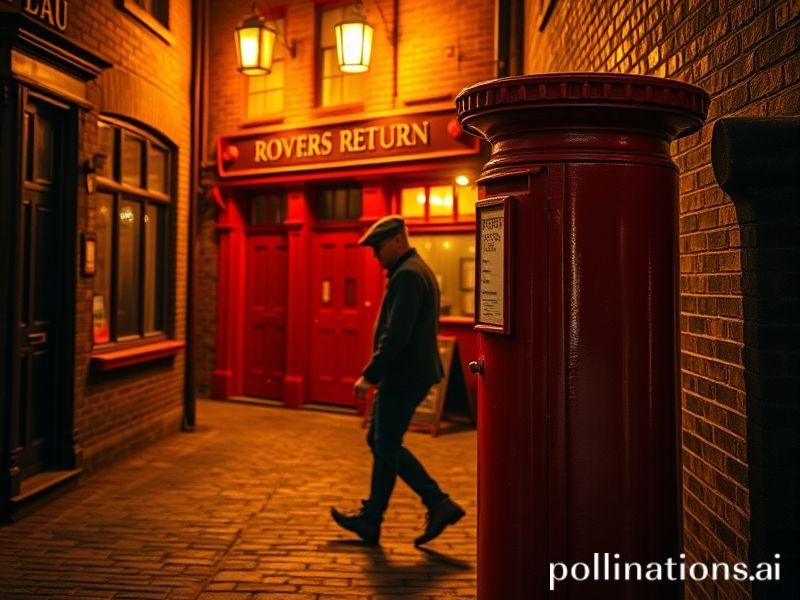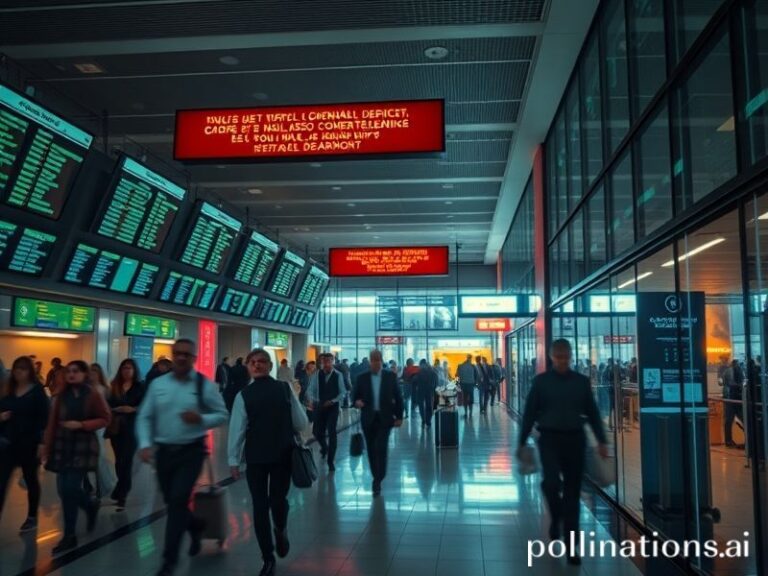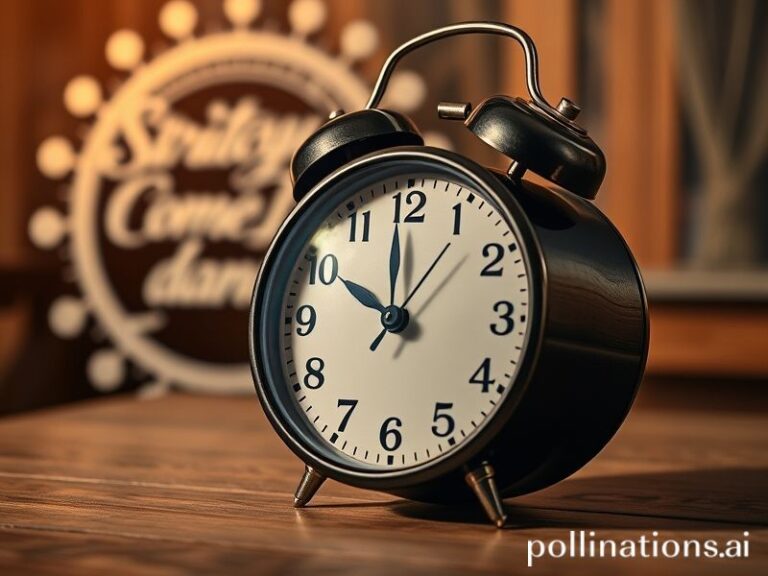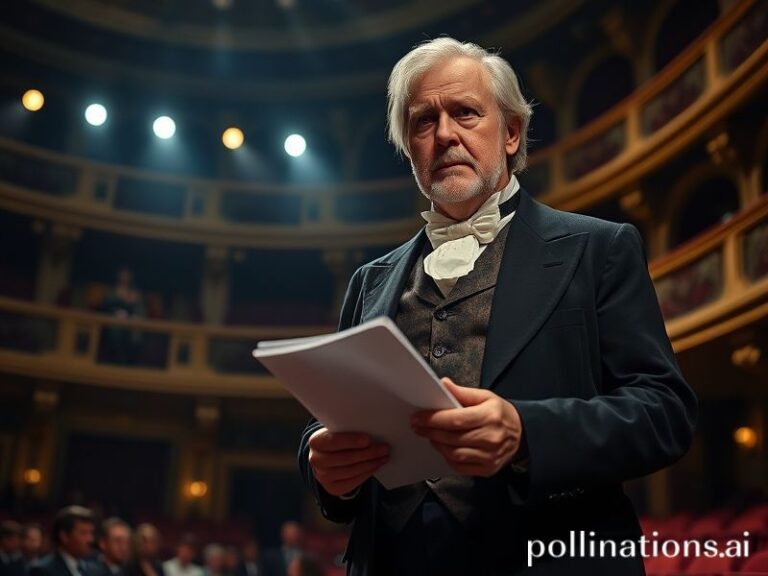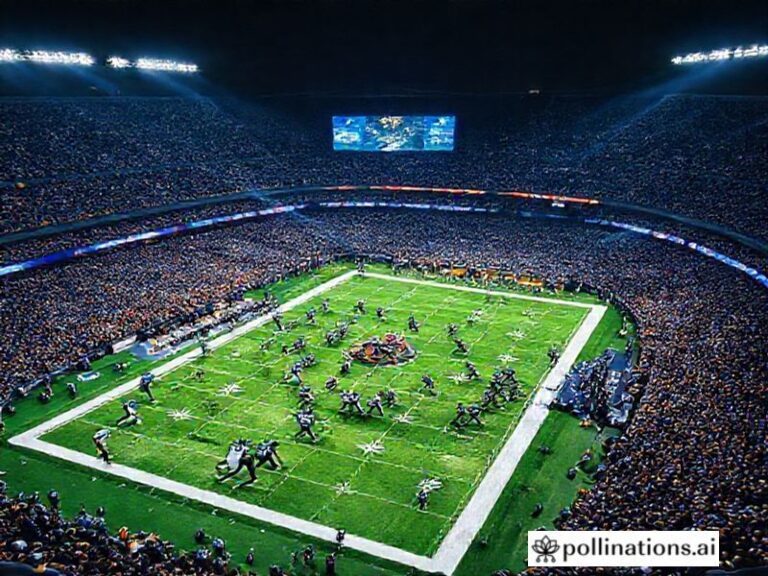Weatherfield World Order: How Coronation Street Became Britain’s Last Global Empire
Coronation Street: The Last British Empire Still Broadcasting
By Our Special Correspondent in Weatherfield-on-the-Wider-World
Manchester, England — While the pound sterling flirts with parity against the dollar and Brexit negotiators argue over fish sticks, Britain’s most durable export remains a cobblestoned cul-de-sac where the beer is warm, the accents warmer, and the mortality rate rivals a midsize war zone. Coronation Street—sixty-three years old and still refusing to die—has quietly become the United Kingdom’s most successful soft-power project since the Royal Navy gave up gunboat diplomacy for gin adverts. From Lagos living rooms to Lapland saunas, the fictional lives of Weatherfield’s barflies and serial killers stream nightly, proving that globalization’s real lingua franca isn’t English but melodrama.
Consider the geopolitics. In an era when Netflix spends the GDP of Paraguay on a single dragon episode, the Street churns out five half-hour installments weekly for the cost of a minor drone strike. This thrift appeals to broadcasters from Canada’s CBC (where it airs as a quaint anthropological study) to Finland’s YLE (where subtitles struggle to translate “chippy tea” into anything a Nordic social democrat can digest). Even in Australia, a nation constitutionally allergic to British nostalgia, viewers tune in to remind themselves that somewhere it rains more than it does in Melbourne and the class system is still refreshingly intact.
The show’s secret sauce is its capacity to make catastrophe feel cozy. Factory roof collapses, tram crashes, and the occasional serial-killer knitter are served with a cup of milky tea and a one-liner about the weather. This formula translates across cultures because human beings, regardless of passport, enjoy watching other human beings suffer slightly less than they do. In post-Soviet states, where entire economies once vanished overnight, the travails of a corner-shop owner struggling with VAT paperwork look almost charming—like capitalism with stabilisers on.
Meanwhile, the cast has become a low-key diplomatic corps. When a character departs via meat cleaver or quickie wedding in Gibraltar, tabloids from Minsk to Montevideo dispatch obituaries. The death of stalwart battle-axe Vera Duckett (off-screen, mercifully, sparing the CGI budget) prompted candlelight vigils in New Zealand pubs—an irony not lost on Māori activists whose land grievances rarely get 280 words in the same papers. Even the Taliban, who banned television outright, reputedly bootleg DVDs in Helmand bazaars under the label “Infidel Kitchen Sink.” Apparently jihadis, too, want to know if Leanne Battersby will ever find lasting happiness.
Back in Britain, politicians have learned to treat the Street as a national weather vane. A 2019 plotline about a collapsed patio crushed a minor housing minister’s career faster than you can say “substandard concrete.” The Labour Party now polls focus groups on whether voters trust a candidate to buy a round at the Rovers Return. Meanwhile, the Treasury quietly calculates how many soft-power credits accrue every time a Turkish soap opera rips off the theme tune. (Answer: roughly one F-35, minus ejector seat.)
Yet for all its global reach, the show remains stubbornly parochial. Characters still measure distance in “just past the chippy” and time in “after the Queen’s speech.” This tension—between universal emotion and hyper-local detail—explains why a Serbian housewife can weep at an affair between two Mancunian mechanics she wouldn’t recognize on the street. It’s the same reason American presidents quote Churchill: sentiment travels better than policy.
As the world lurches from pandemic to proxy war, Coronation Street offers an oddly reassuring promise: whatever fresh hell awaits, someone on a cobbled street will be worse off, better dressed, and cracking jokes about it. That might not be progress, but in 2024 it’s the closest thing we have to stability. And should the bombs ever fall, archaeologists sifting through the rubble will probably find a dusty Rovers Return ashtray, still warm, still spinning tales of marital woe and undercooked hotpot. The empire may have set, but the pub lights stay on.

